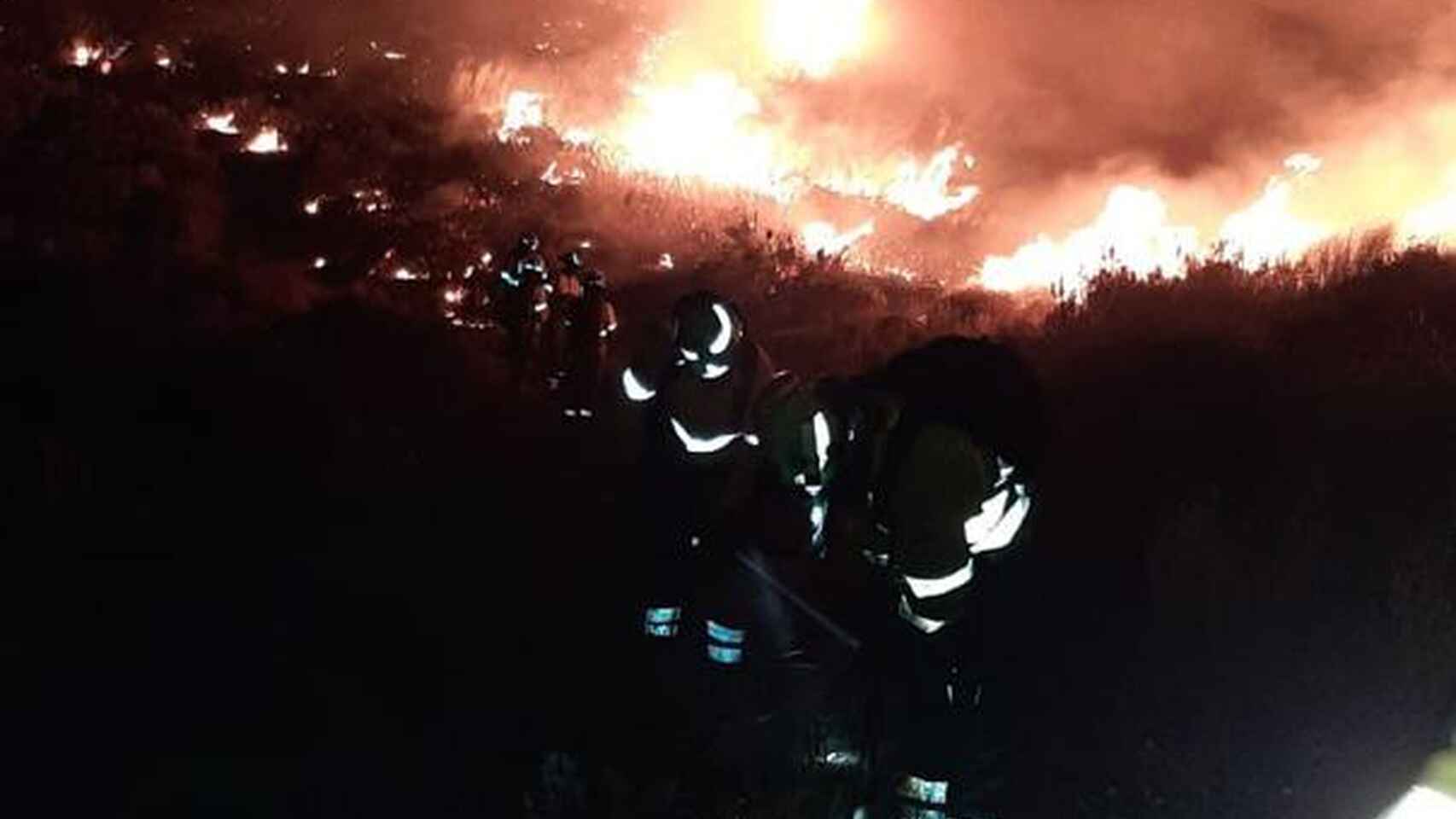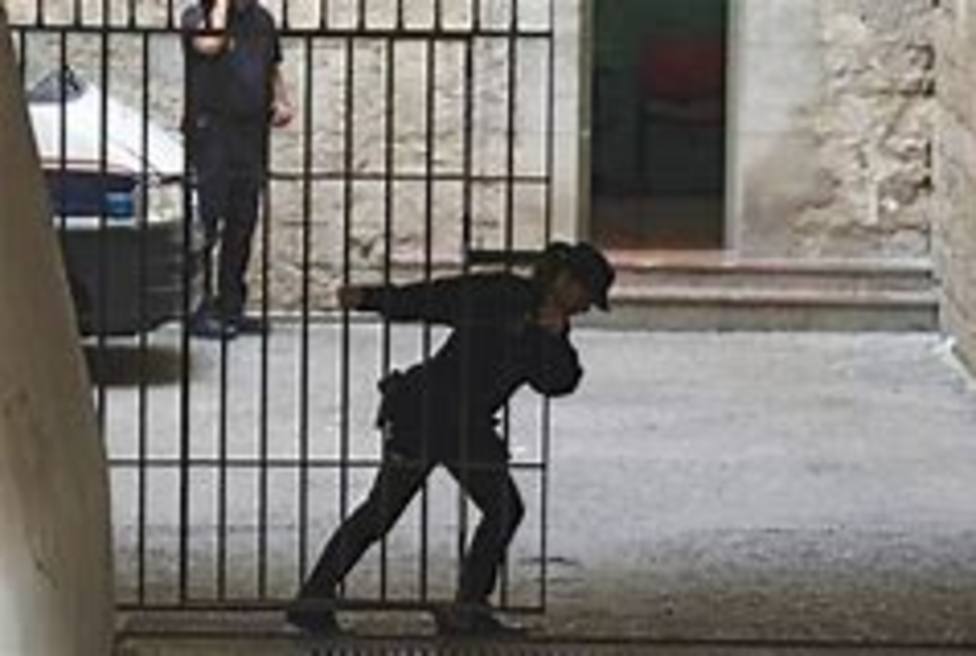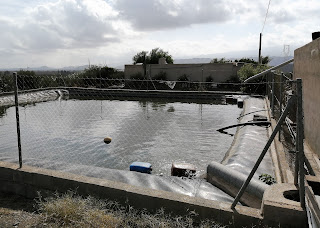Being sober on a bus is, like, totally different than being drunk on a bus'.
Ozzy Osbourne
I haven't had a drink since last September, well, this September if you want to split hairs. Because you see, it's the ghastly month of Sober October once again. I am sitting here wondering if a cerveza sin alcohol counts against the rule of zero booze! It may do, so I stick instead to a soft lemony drink from Lidl that I call Sucedáneo de Acuarius.
In its favour, it's cheap.
There's
a jar of smoked herring in the fridge, the rollmops that the Norwegians
do so well. I found it in the local shop yesterday and brought it home.
But how do you have a rollmop-session without vodka? Huh? A glass of
goat's milk just doesn't cut it.
Sober October is an excuse to give the liver a rest. I once managed a whole year off the booze, following an attack of jaundice in Guatemala. The local curandero told me to keep away from the grog if I didn't want to keel over, so there it was. In those days, I could always smoke weed to keep me going, but I gave that up, along with terbaccy, much to the relief of my tubes, these many years ago.
A WhatsApp friend has sent me an article which says that,despite the assurances of Spain's best and brightest advertising executives, booze - even in small quantities - is bad for you. Taking a glass of wine with your pork chop will not help your heart manage to keep the beat. But, can you cook with wine, does that count? How about a custard trifle with a spot of sherry in the jelly? No? I thought not. Not that I intend to stay on the wagon a moment past Halloween. I have a hankering for a real beer or two.
My parents, along with most of the foreign population of Mojácar back in the 'early days' (before it became bourgeois), were heavy drinkers - brandy for breakfast types. They all died young: inebriated and cheerful, and leaving a sizable bar bill. This experience kept me generally wary of the hard stuff, and I rarely drink anything strong (rollmops and vodka excepted).
Perhaps the new campaigns on the TV for low-alcohol whisky and gin are aimed at people like me. Have you seen them? Drink Beefeater 20%, it'll make you feel good. The advert is legal because - apparently - there's a strength limit on advertising booze. Of course, the advert is to persuade people to drink the proper stuff, not the gnat's-piss version. It's a bit like non-alcoholic beer - what's the fun in that?
I have a count-down next to the bed. Every day I cross off another number on the calendar, working my way slowly down. Will I have lost any weight after a month on the soda-pop? I shall let you know.

 e
to travel around Spain, perhaps ‘Parador hopping’ or the occasional
shopping trip down to Marbella or Gibraltar - or maybe they prefer to
spend their time at home, gardening or entertaining. This group, as far
as Spain is concerned, is most welcome. They spend freely and they don’t
‘take away anyone’s jobs’. Despite some indignant Facebook posts to the
contrary, I think that the majority of Brits living in Spain fall into
this catagory. These days, there's an unfortunate sub-group among the
long-timers - those who have failed to get their residence papers - the
ones worried now about the precise meaning of the ninety-day rule.
e
to travel around Spain, perhaps ‘Parador hopping’ or the occasional
shopping trip down to Marbella or Gibraltar - or maybe they prefer to
spend their time at home, gardening or entertaining. This group, as far
as Spain is concerned, is most welcome. They spend freely and they don’t
‘take away anyone’s jobs’. Despite some indignant Facebook posts to the
contrary, I think that the majority of Brits living in Spain fall into
this catagory. These days, there's an unfortunate sub-group among the
long-timers - those who have failed to get their residence papers - the
ones worried now about the precise meaning of the ninety-day rule. ible.
How can this be? Shouldn’t all of us, in the decades to come, start to
create our own homogenised way of speaking? Shouldn’t we become,
eventually, something like the two-language-speaking Gibraltarians?
ible.
How can this be? Shouldn’t all of us, in the decades to come, start to
create our own homogenised way of speaking? Shouldn’t we become,
eventually, something like the two-language-speaking Gibraltarians? we
have lots of firewood. Blackened, sooty and dead. It just needs
scooping up, cutting, breaking or uprooting and the chimney is stuffed
to bursting for the evening. Our house is a country-house, nice in the
summer, cold and drafty in the winter. A good fire in the bedroom to
keep everything toasty, but not much use in July. I decide that I shall
once again put off for another day any thoughts of sawing, piling and
sorting the lumber so kindly donated by a passing pyromaniac.
we
have lots of firewood. Blackened, sooty and dead. It just needs
scooping up, cutting, breaking or uprooting and the chimney is stuffed
to bursting for the evening. Our house is a country-house, nice in the
summer, cold and drafty in the winter. A good fire in the bedroom to
keep everything toasty, but not much use in July. I decide that I shall
once again put off for another day any thoughts of sawing, piling and
sorting the lumber so kindly donated by a passing pyromaniac. 

 business clearly chalked by a previous inmate. There was evidently time to kill.
business clearly chalked by a previous inmate. There was evidently time to kill.

